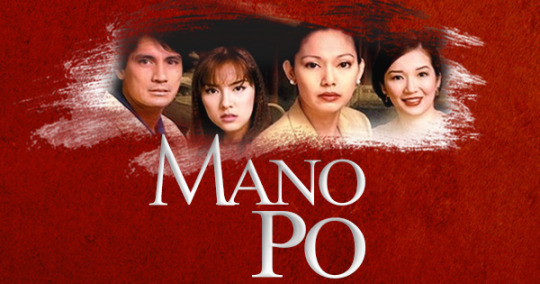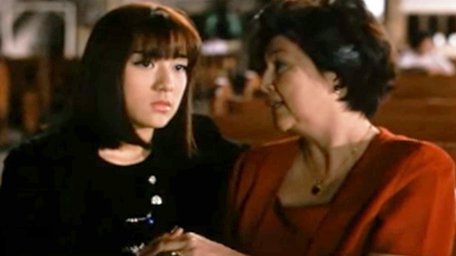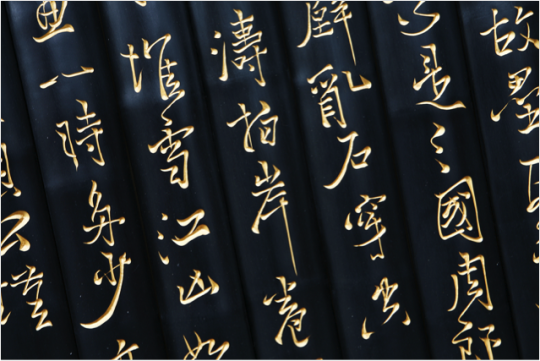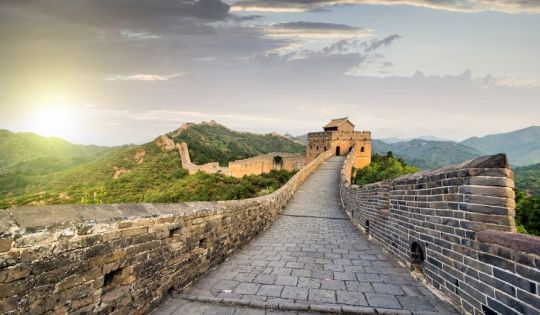#Especially the liminal spaces that are surreal and infinite
Text
I want to talk about Mikoto’s first trial mindscape. Not in a theoretical way where I dissect every little detail to get insight on his character, I’ve already done that before. But just in the immaculate feelings it gives off.

It’s a surreal place. An infinite world of shallow waters bathed in a clouded blue sky. Sitting in this infinity is a structure. A broken down room, if you can even call it that. The remains of the walls are pure, white tiles with exposed metal wires sticking out of the crumbling concrete. A mirror hangs on the wall. A mirror only reflecting the endless blue sky. Inside the walls lays a green couch, and a small wooden table in front of it. In the corner there’s a green chair with a downturned tarot card on it. It has no reason to be there, but it is. A lamp resides near the couch, yet too far away. A lamp of no use present in the endless clear skies. Another table and a TV appear sinking into the water, the water that is too shallow for that. Two giant tarot cards over watch this strange place, the hanged man and the fool, both represented by mannequins.
This is a mindscape that defies reality. How can there be such a strange structure in the middle of nowhere? A nowhere that’s not even possible. Yet to me this strangeness and isolation feels comforting. I wish I could just be there, and simply exist.
When I first saw MeMe, I recognised the mindscape. Not from anywhere, it just felt… familiar… a bit too familiar. To me, Mikoto’s mindscape feels like a liminal space, or more akin to something like the dream pools and dreamcore in general.
The utter infinite world with only a single, uncanny structure feels strange yet comfortable. It’s a direct mix of the living room and the bathroom from the real world. This mindscape just makes me feel so much with everything that’s presented in it, it’s astounding.

Then suddenly everything goes red. The tranquil blue skies have been replaced with a cloudy, maroon sky. The calm waters have turned scarlet red. The hues of the broken down walls are bathed in red. All of the comfort that was present originally has been stripped away. Leaving a feeling of fear, dread and confusion.
It’s still kinda hard for me to understand what’s happening within the red version of the mindscape in the story, but it’s fascinating how a single change of colour can make a tranquil space into something threatening, even though nothing really has changed.
#milgram#Mikoto kayano#liminal space#Saw a video about liminal spaces by scrabbl and how they’re comforting really makes me think about this#Especially the liminal spaces that are surreal and infinite#Mikoto’s mindscape is payed a lot of attention to and even past it’s story significance it’s absolutely beautiful#I want to talk about the prisoners mindscapes and everything as they’re so interesting to analyse#From both a narrative and aesthetic perspective#Dreamcore
50 notes
·
View notes
Text
Dirk Gently Season 2
Ok, I’m not plugged into the fandom as much as I’d like and therefore have not seen half of the supplementary content, teasers, hints etc... (I’ll leave that to @alittlefellowinawideworld)
BUT
Here’s my guess for season two (Confident in the knowledge that the true season will be infinitely more strange and beautiful beyond my imagining.)
After seeing the most recent Silas/Panto first look (*Slow clap* *Cries tears of awe* *watches again*) I’m going to throw my weight behind my previous theory.
We know that there are people with abilities who have escaped Blackwing’s clutches and influence. I believe that one such subject was a boy, growing up in the 80′s or so, who possessed the ability to warp reality around himself. Enough so that the small town he lived in, Bergsberg, became used to strange occurrences and familiar with the interconnectedness of all things. : J
But, the strangeness attracts attention of the Blackwing variety, or maybe even a rogue hunter (The Mage is the scary, bloody guy, right? Does he have an affiliation?) To protect himself, the boy hides himself from all perception, living in a magical realm of his own projection, Wendimoor. Over the years he stays hidden, his house becomes one of those creepy liminal spaces on the edge of town. “I heard someone who went exploring there never came back...”
Coming to present day you have our current cast of characters, all being hunted down by Blackwing individually. One such subject is the woman posessing the squeaky toy, who has been communicating subliminally, trying to aid and connect all of the.... enhanced people. Sending Dirk’s name to Bart, possibly being the princess in the hotel commercial, possibly in Amanda’s visions, and maybe the glowing eyed person of the trailer who tells Dirk to “Find the boy”. I think that she has been trying to pull a Professor X, bringing them together to form a united resistance. She might have mentally brushed against the “sleeping” boy, realized the possibilities for evasion if they could utilize his skill and set to waking him up.
She began to intrude into the dream of Wendimoor, planting a prophecy about a man who could save the kingdom, Dirk Gently. Now, if anyone could manage to stumble their way through a surreal boobytrapped dreamscape, it would be Dirk. So he is broken out of Blackwing and reunited with his team in order to find the boy and reach him in his hiding place. But, the mage is still on the scent after all these years and Alan Tudyk’s character (Priest? I don’t even know) is on Dirk’s trail. So it’s a race to see who can find the “boy” first and seize his abilities for their own protection or gain.
I like this theory, though it doesn’t account for a whole lot and I’m sure it is way off. I especially like the questions it raises about the residents of Wendimoor and their world. If they exist in the dreams of one person, what happens if he wakes up? Do they cease to be? Will it be a question of waking the boy to save our heroes only to doom these “fictionals?” If they were allowed to remain, would they still even be safe or would the Mage finally manage to break through the aging defenses and kill the boy, ending them regardless? Or are they real? Trespassers who were trapped in the house and the illusion? Or even other people with abilities who were susceptible to/on the same frequency as the boy’s ability and are hiding within the same neural network? If one of them has gone missing, as stated int eh teaser, did that person wake up? Or were they found and killed by the Mage and are indicative of the hunter closing in?
I don’t know! You don’t know! But I can’t wait to find out what’s really going on! Season 2 come soon!
25 notes
·
View notes
Text
The Chinoy Way
Mano Po, the Liminality of Identity, and Mythbusting Chinese-Filipino Culture

(Note: Chinese-Filipino refers to Filipinos of Chinese descent. Chinese refers to the people of Chinese ethnicity or the Chinese diaspora specifically depending on the context. Filipino refers to either Filipino citizens of Filipino ethnicity or Filipino people in general (regardless of race) depending on the context.)
I never cared much about being represented in mainstream media; being a Chinese-Filipino, I didn’t think it would ever happen. Funny enough, as popular as the Mano Po series is here in the Philippines, I had no idea it would actually be a story about, well, me. It was the first time I saw myself onscreen, and I must say, it was a surreal experience, and I reacted to it by basically bawling my eyes out and annoying everyone in the vicinity. Ever have an existential crisis in the middle of a class film viewing? It’s really heavy.
Unlike most Chinese-Filipino families, mine has been here for much longer, going back six generations to the time of the Spaniards in the mid-1800s. And while we are as Filipino as Filipino gets, our Chinese roots are still very much alive in words, thoughts, and deeds. That being said, all my life, I’ve identified as Filipino, but here in the Philippines, people consider me Chinese. I have begun to make peace with the truth that my home is in many places, and also nowhere. This crisis of the self is nothing new to any immigrant of any generation. Yet, I am proud that my identity is complete in its liminality.

What is identity? Perhaps it is too simple to define it as something that makes a person. It isn’t exactly synonymous to the self either, but it isn’t a distinct aspect of humanity. I personally like to define identity as an infinitely extensive image of the self limited to the temporal and spatial dimensions we live in. We ourselves cannot fully identify every aspect of our identity; there are countless factors that make us who we are, and none of them are truly mutually exclusive. But we do put tags and labels on the parts we can easily define–gender, nationality, ethnicity, sexuality, views, belief system, culture–because these are at least somewhat rooted in time and space.
I love the concept of identity because just the act of thinking about it already alters it a bit. Every time we perform introspection, we make subconscious, minute changes to our self-image. The challenge for Mano Po’s Go family is to reconcile all these little differences and accept the Philippines as home. And the challenge for native Filipinos is to accept the Chinese-Filipinos as their own, as Filipinos.
Perhaps the best way to go about it is to establish trust and understanding, so right now, we’re going to use Mano Po to bust three common myths about the Chinese in the Philippines.
Chinese families require their children to speak a Chinese language: Myth

It’s family-specific, but based on my experience, it’s not a requirement, just a preference. This isn’t true for all Chinese families, of course. Whether it’s Mandarin, Fukienese, Cantonese, or whatever, it’s not unheard of for a family to take language seriously. After all, what are after-school/weekend Chinese classes for? However, it is highly unlikely that a family will outright shun a child who cannot speak any Chinese language, especially if they did not communicate in said languages much at home. The Go sisters, for instance, all have Filipino as their first language due to childhood interaction with their household help. It’s likely that Richelle misunderstood the reason behind her family’s animosity towards her. She thinks it’s because her Fukienese isn’t that good, but for many families with more than three generations of immigrants, fluency in a Chinese language is understandably quite rare.
The reason Richelle’s family consider her problematic is that, well, she is. She disrespects her elders, hangs out with the wrong crowd, gets into legal trouble, doesn’t help out in the family, and generally lives her life selfishly. Language isn’t even on the radar, it’s just easier to use that to mask all the obvious reasons.
The Great Wall is fueled by racism: Myth

Not this one.

This one.
The Great Wall is the metaphorical strictly-imposed limitation on the ethnicity of a Chinese person’s romantic partners. Specifically, “Chinese women for Chinese men,” as Mano Po clearly states. Richelle and Linda both experienced flak for being in relationships with Filipino men. In recent years, non-Chinese wishing to date people of Chinese descent have complained about getting their hopes dashed by an impassable Great Wall. This bitterness and the fact that the reasons behind it are never really explained are perhaps the reasons why many people, including the Chinese youth themselves, see the Great Wall as a racist purification device. The Great Wall resists just a single explanation; it’s a complex cultural phenomenon, but racism is not one of its driving forces.
For one, the Chinese-Filipino diaspora in the Philippines is relatively small, and many families are familiar with other Chinese families. Knowing the family history of romantic partners is of utmost importance for the Chinese, and that simply isn’t possible with a non-Chinese family. This knowledge is crucial because, more often than not, people take after their families. A family of crooks will likely produce crooks, while one of scholars will likely be made up of professionals. It’s to avoid not just conflict but also abuse; sending your child off in marriage to a shady character is highly risky and most unwise. It’s less discrimination and more of caution.
The Chinese are also afraid of acculturation, and really, the centuries-old Chinese culture is often looked down upon for being discriminatory or backward by newer cultures. But it is this same longevity of culture that allows the Chinese culture to have not just a strong foundation backed by thousands of years of wisdom and technological advancement, but flexibility and fluidity in the face of change. The Chinese culture evolves fast, and it evolves well, but certain valuable traits stay forever. The pursuit of knowledge, for instance, is constant, but its expression in the Chinese peoples evolves as education changes. The sense of duty to family, the willingness to delay gratification, the value of planning…these are things that built a civilization, and these are things the Chinese cannot afford to lose, especially in places that do not put as much importance into these values.
The Great Wall is by no means an end-all be-all ultimatum. Many don’t have it; I, for instance, have no such requirement. Richelle was allowed to marry Rafael because the Go family learned they could trust him. Vera understandably insinuated he was a gold digger at first; Filipino cops are known for not just bribery, but also for actually being the perpetrators of crimes, or at least being in on them. And yes, like it or not, there are indeed instances of marrying into Chinese families for money. Vera would rather be safe in a generalization than give anyone the benefit of the doubt, but Rafael proves to be an honest man without any intent to cash in on some good old inheritance. In the end, the Great Wall is not fueled by racism but by some suspicion stemming from a lack of knowledge of the individual in question.
Chinese-Filipinos consider themselves more Chinese than Filipino: Myth
Last semester, I performed an ethnographic study of Chinese-Filipino students in my university. All of them said they call themselves Chinese-Filipino, even to foreigners, and all of them consider themselves Filipino. Again, when it comes to identity, there is no more x than y, nor is there a half-half; the liminality of identity allows a kind of superposition of existence. Cultures are exchanged, not erased, and this allows identities to develop, grow, and change in beautiful ways.

After seeing all the heroes of Chinese blood who fought for and served the country, past and present, it’s impossible to say Chinese-Filipinos don’t see themselves as fully Filipino. We are Filipino, and despite current political tensions between the Philippines and China, we will always be Filipino. The question now is: do you accept our identity?
Images from TFC, Colourbox, Esquire Philippines, worldatlas.com, ChinesePod
#cinemagnetic film blogs#film blog#film#mano po#joel lamangan#identity#chinese#filipino#chinese filipino#chinoy#china#philippines
0 notes